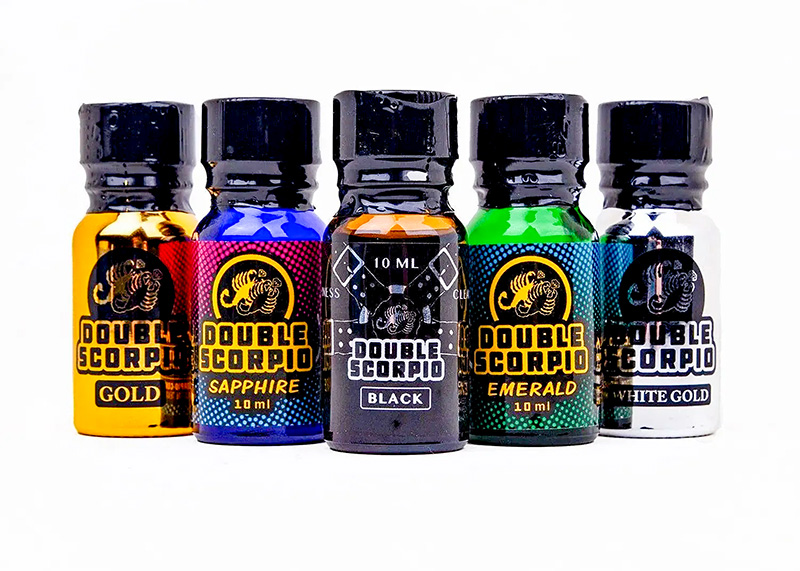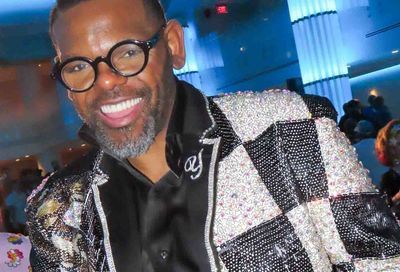Victories and Defeats: The Year in Review
The win for marriage equality was the high point of 2015 -- and a seminal moment for the LGBT movement

“No union is more profound than marriage, for it embodies the highest ideals of love, fidelity, devotion, sacrifice, and family…. [The petitioners’] hope is not to be condemned to live in loneliness, excluded from one of civilization’s oldest institutions. They ask for equal dignity in the eyes of the law. The Constitution grants them that right.”
With those words, Supreme Court Justice Anthony Kennedy changed the course of history, marking an historic milestone that could serve as the basis for all of the LGBT movement’s future victories, at least stateside. But while issues surrounding marriage equality undoubtedly garnered some of the year’s top headlines, 2015 also introduced the world to a colorful cast of characters who shaped the news cycle, earning spots in history for their pro- or anti-LGBT stances. As 2015 draws to a close, we look back at the hard-fought victories and the heart-wrenching defeats for the LGBT movement, as well as the quirky personalities we’ve encountered along the way.
JANUARY
The year’s first LGBT headlines began with the defeat of several states’ bans on same-sex marriage. With the fall of each ban, Supreme Court watchers wondered, both aloud and privately, if the nation’s highest court would tackle the issue of same-sex marriage. Finally, on Jan. 16, the court declared it would take up four cases from Kentucky, Tennessee, Ohio and Michigan to resolve the issue at the federal level.
In response, various parties began filing amicus briefs urging the Supreme Court to rule in support or against same-sex marriage. President Barack Obama and former Attorney General Eric Holder urged the high court to rule in favor of allowing same-sex couples to wed.
The overturn of state bans also prompted conservatives, particularly those running for the presidency in 2016, to address the issue of same-sex marriage. Some, like former Florida Gov. Jeb Bush, adopted a more conciliatory tone, calling for “respect” for people on both sides of the issue. Others, including Florida Sen. Marco Rubio, former Arkansas Gov. Mike Huckabee and Texas Sen. Ted Cruz, used the opportunity to decry the overturn of the marriage bans and establish themselves as “bona fide” social conservatives.
FEBRUARY
February saw a flurry of proposed legislative and executive actions aimed at advancing LGBT rights at home and abroad. Sen. Ed Markey (D-Mass.) and Rep. Alan Lowenthal (D-Calif.) reintroduced the International Human Rights Defense Act, which sought to instruct the State Department to develop a global strategy to prevent and respond to instances of anti-LGBT discrimination or violence. Following that lead, Secretary of State John Kerry named Randy Berry as a special LGBT envoy tasked with advocating for LGBT rights around the world.
That same month, both President Obama and Secretary of Defense Ashton Carter publicly expressed support for a lifting of the ban prohibiting transgender servicemembers from serving openly.
In a historic milestone, former Oregon Secretary of State Kate Brown became the first openly bisexual governor of a U.S. state after the resignation of former Gov. John Kitzhaber.
MARCH
The states of Utah and Indiana gave Americans two drastically different visions of the state of LGBT rights in the country. Utah passed a bill that prohibited discrimination against LGBT people in housing and employment, but that also provided religious protections for those with objections to same-sex marriage or homosexuality. Backed by the Church of Jesus Christ of Latter-day Saints, the bill, which passed in the heavily Republican state, was viewed by many as an example of how LGBT rights advocates could find common ground with social conservatives when it comes to drafting and passing LGBT-friendly legislation.
In stark contrast, the Republican-dominated legislature of Indiana passed a “Religious Freedom Restoration Act” (RFRA) that critics said would condone discrimination against the LGBT community. That bill was signed into law by Indiana Gov. Mike Pence. However, Pence and Hoosier legislatures were soon the targets of a backlash, as members of the business community and other states and cities began to extract punishments for the bill, such as a ban on all state-sponsored travel to Indiana.
APRIL
In April, the backlash against Indiana’s RFRA law continued, prompting Hoosier lawmakers and Gov. Pence to reverse course and introduce a “fix” that would clarify that the RFRA’s intent was not to discriminate against LGBT people.
Meanwhile, former New York senator and Secretary of State Hillary Rodham Clinton officially declared her candidacy for the White House in 2016, launching a campaign that, from its very first commercial, embraced the LGBT community as an important constituency on whom she would rely for votes.
MAY
As spring came into full bloom, so did the push for marriage equality abroad. The people of Ireland, in a referendum, overwhelmingly approved the legalization of same-sex marriage. In contrast, Australia’s prime minister, Tony Abbott, refused to allow a referendum on same-sex marriage in his country.
LGBT bills continued to slowly wind their way through some legislatures and into law. Maryland Gov. Larry Hogan allowed two pro-LGBT measures to go into effect without his signature, while Hawaii passed a transgender birth certificate bill and Oregon passed a law banning conversion therapy on minors. Meanwhile, the Supreme Court’s decision not to hear a challenge to New Jersey’s law banning conversion therapy opened the doors for other states to continue pursuing such bans, and U.S. Rep. Ted Lieu (D-Calif.) introduced a federal measure that would allow for-profit conversion therapy to be classified as “fraud” under the Federal Trade Commission Act. These measures came a month after President Obama expressed support for states passing their own laws to outlaw the practice of conversion therapy on minors.
In D.C.’s backyard, the Fairfax County School Board amended its existing nondiscrimination policy to include transgender employees, staff and students. By approving the nondiscrimination policy, Fairfax broke ground, becoming the largest school system in the state to adopt pro-transgender policies.
Meanwhile, the Food and Drug Administration issued proposed guidance that would change the lifetime deferral on blood donations for men who have sex with men (MSM) to a 12-month deferral. But LGBT groups pushed back, claiming the proposed change did not go far enough and still discriminated against monogamous gay and bisexual men, despite the lower likelihood of HIV transmission against that group.
JUNE
In April, Olympic athlete Bruce Jenner came out as transgender on a nationally-televised interview with Diane Sawyer. In June, Caitlyn Jenner was officially introduced in a glamorous Vanity Fair spread, making her one of the most visible transgender figures in the country. But while Jenner earned praise for bravery, she has since also earned her fair share of criticism for comments demonstrating a lack of understanding on LGBT issues.
In a preemptive move to the expected Supreme Court ruling, North Carolina legislators passed a bill allowing magistrates and recorders of deeds to refuse to perform or participate in marriages to which they have a moral objection, providing a model for other states that insisted on pushing for the passage of so-called “religious freedom” laws. Gov. Pat McCrory (R) vetoed the bill, but saw his veto overturned by the legislature. Weeks later, the U.S. Supreme Court ruled 5-4 in favor of legalizing marriage equality nationwide.
JULY
July saw numerous headlines dealing with LGBT issues following the Supreme Court’s decision. County clerks in states such as Tennessee and Mississippi resigned en masse over having to perform or issue licenses for same-sex marriages. Thirteen different counties in Alabama decided not to issue marriage licenses to any couples, regardless of orientation. An identical approach was adopted by three clerks in Kentucky, including, most infamously, Rowan County Clerk Kim Davis, whose opposition to marriage equality made her a darling of social conservatives.
In Louisiana, Gov. Bobby Jindal issued an executive order guaranteeing special protections to people who object to same-sex marriage or homosexuality. His actions later prompted New Orleans Mayor Mitch Landrieu to issue his own executive order aimed at counteracting Jindal’s.
July also saw the end of the Boy Scouts of America‘s (BSA) longstanding ban on openly gay adult leaders. The organization’s executive board ratified a resolution allowing gay Scoutmasters, adult leaders, and parent volunteers to become involved with Scouts, but also allows troops chartered by religiously-affiliated institutions to continue to discriminate.
AUGUST
The international LGBT community was shocked by a brutal stabbing of a 16-year-old Israeli girl at the Jerusalem Pride Parade, particularly after it was revealed that the assailant, Yishai Schlissel, an Orthodox Jew, had made threats against the parade shortly after being released from jail for an almost identical attack 10 years earlier.
Meanwhile, federal and New York authorities were inundated with criticism by members of the LGBT community after they raided the headquarters of online escort site Rentboy.com and arrested the company’s CEO and six high-level stafers. Some organizations used the opportunity to call for the decriminalization of sex work, noting that many LGBT individuals are often forced to resort to sex work for financial survival.
SEPTEMBER
The popular Pope Francis captivated much of America during his visit, even though his stance on homosexuality, gender identity and same-sex marriage did not change. Still, many LGBT Catholics hailed Francis’ openness, citing his meeting with a former student of his who was gay, the man’s partner, and several others during his stop in Washington. However, some of that goodwill eroded when it was learned that the Pontiff had also met privately with Kim Davis, who had gone to jail for five days earlier that month rather than allow her deputies to issue same-sex marriage licenses. The Vatican later issued a statement saying it regretted the meeting with the controversial county clerk.
OCTOBER
October saw an alarming week-by-week increase in the number of transgender or gender nonconforming people murdered in various locations throughout the country. In Gaithersburg, the D.C.-area community lost one of its own after 21-year-old Zella Ziona was shot and killed near a Montgomery County shopping center.
In New York, Gov. Andrew Cuomo used his executive authority to expand nondiscrimination protections for transgender New Yorkers after years of failed attempts to pass the proposed Gender Expression Non-Discrimination Act (GENDA) through the Republican-dominated Senate in Albany.
NOVEMBER
The community suffered some tough defeats electorally in 2015, while being successful in others. In Kentucky, gubernatorial candidate Matt Bevin won after attempting to tie himself to Kim Davis and heavily emphasizing social issues in his race against Attorney General Jack Conway, who had previously refused to defend Kentucky’s ban on same-sex marriage after it was overturned. As a result of Bevin’s victory, Davis may get her way: the governor has vowed to issue an executive order removing all clerks’ names from marriage licenses, so that those who object to same-sex marriage will be able to avoid participating or assisting in one.
On election day, a stunning defeat crushed the Houston Equal Rights Ordinance (HERO), an LGBT nondiscrimination law that was felled by a nearly 2-1 margin after a barrage of ads claimed that approving HERO’s pro-transgender protections would allow “men in dresses” and sexual predators to attack young girls and women in restrooms. However, sister city Dallas passed its own nondiscrimination ordinance, giving LGBT advocates hope.
Transgender people throughout the nation commemorated the Transgender Day of Remembrance, an annual event to honor those whose lives were lost to anti-trans violence. In the run up to the Day of Remembrance, groups in several cities held “Days of Action,” including D.C., where activists held several demonstrations aimed at calling attention to the economic and health disparities and violence faced by members of the transgender community.
On the health front, subsequent studies in September and November of pre-exposure prophylaxis (PrEP) indicated that the drug Truvada, taken as prevention, may help prevent transmission of HIV. A week after the release of the most recent findings, the Centers for Disease Control and Prevention (CDC) issued its own report recommending that up to 1 in 4 gay or bisexual men should be on PrEP to protect against HIV.
DECEMBER
The FDA decided to move forward with its proposed recommendation to change the lifetime ban on men who have sex with men (MSM) to a 12-month deferral period from the time they last had sex before they are allowed to donate blood.
In Louisiana, newly elected Democratic Gov. John Bel Edwards said he would issue an executive order protecting LGBT state employees and government contractors from discrimination, a complete 180-degree turn from the approach favored by Bobby Jindal when he issued his “religious freedom” order in July.
Despite all that has happened, 2016, in addition to being a presidential election year, is expected to see even bigger fights over LGBT rights. Eunice Rho of the American Civil Liberties Union warns that she expects to see more “religious exemption” measures aimed at eroding marriage equality and nondiscrimination laws introduced next year, as well as “bathroom bills” seeking to restrict transgender children’s use of restrooms or locker rooms.
“Those of us who are engaged in this work know our opposition is regrouping and re-strategizing,” says Rho. “We are preparing for an aggressive push from the other side in legislatures to try and erode gains for LGBT Americans, and we know they will not relent.”
Support Metro Weekly’s Journalism
These are challenging times for news organizations. And yet it’s crucial we stay active and provide vital resources and information to both our local readers and the world. So won’t you please take a moment and consider supporting Metro Weekly with a membership? For as little as $5 a month, you can help ensure Metro Weekly magazine and MetroWeekly.com remain free, viable resources as we provide the best, most diverse, culturally-resonant LGBTQ coverage in both the D.C. region and around the world. Memberships come with exclusive perks and discounts, your own personal digital delivery of each week’s magazine (and an archive), access to our Member's Lounge when it launches this fall, and exclusive members-only items like Metro Weekly Membership Mugs and Tote Bags! Check out all our membership levels here and please join us today!






















You must be logged in to post a comment.